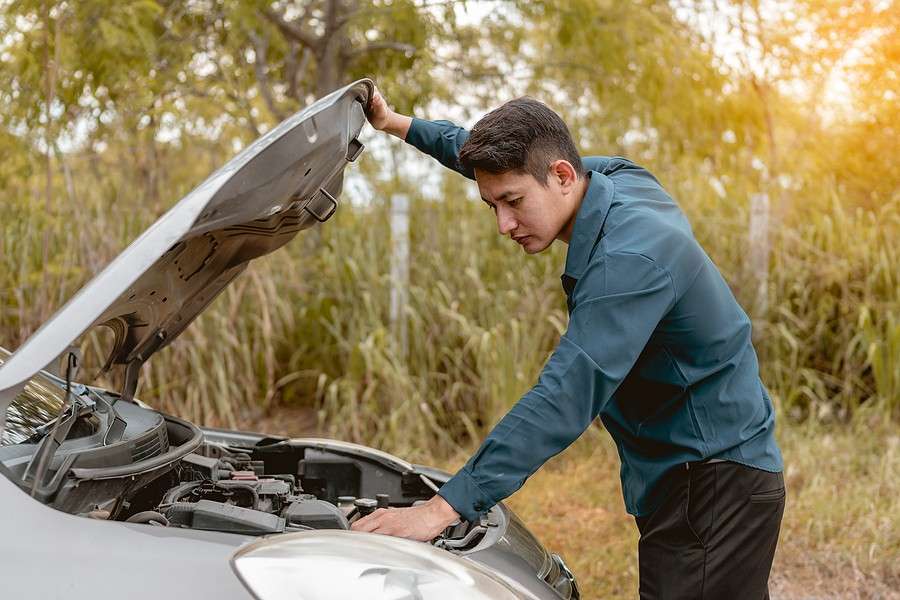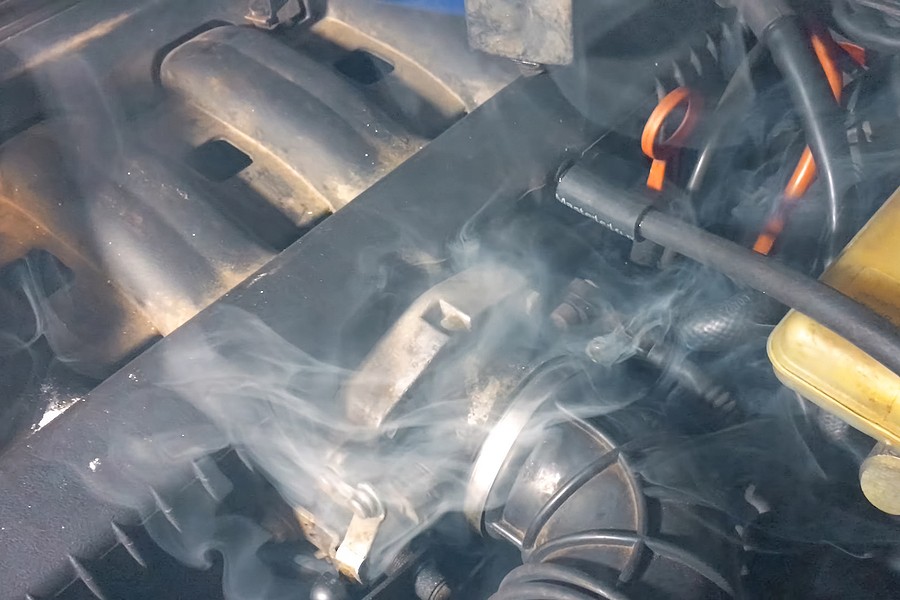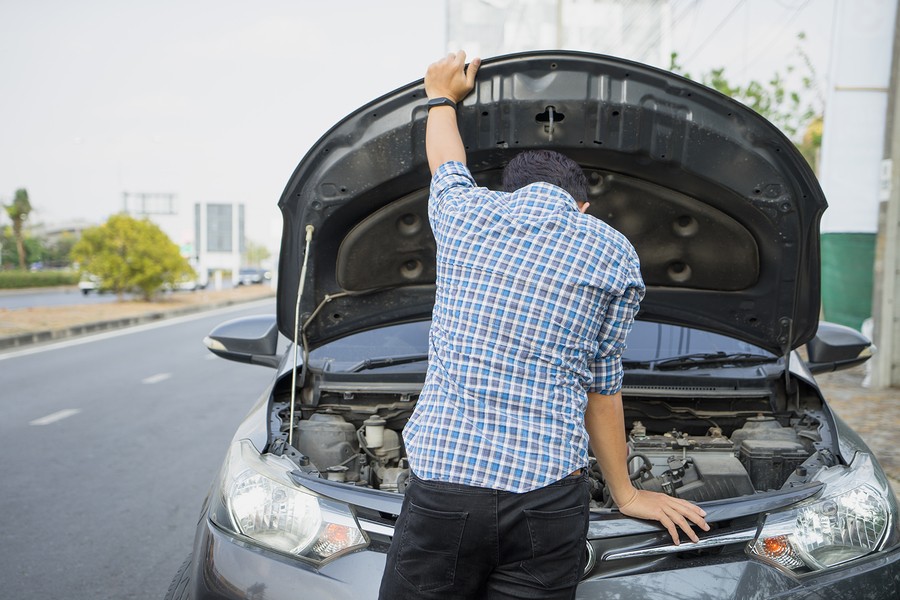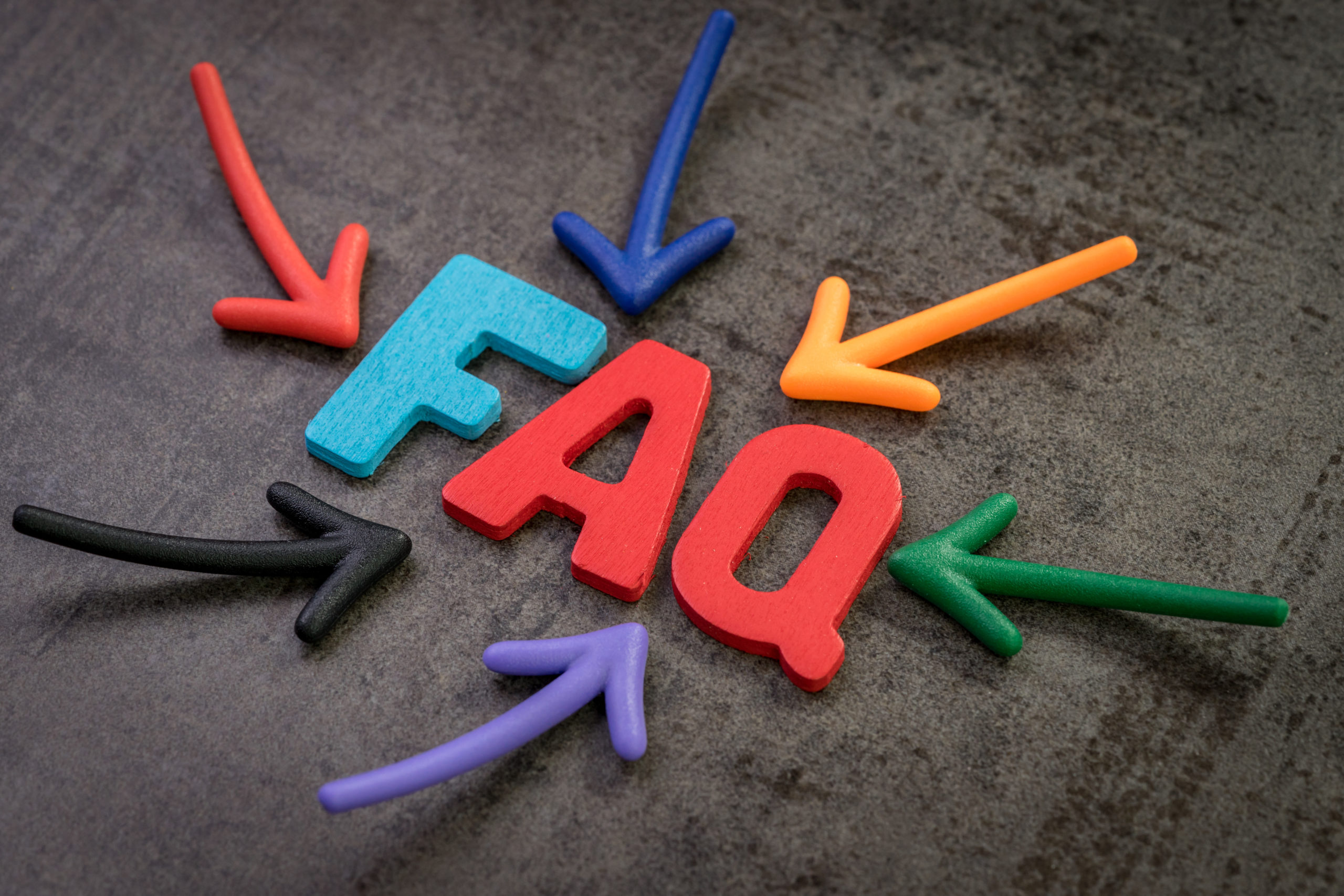Main signs of impending engine failure include unusual noises, excessive smoke, oil pressure changes, warning lights, and performance issues.
Navigating the complexities of car maintenance can often feel like a daunting task. As a car expert with a deep understanding of automotive issues, I've dedicated my career to decoding the language of cars for everyday drivers. Let's dive into the five critical signs of impending engine failure that every car owner needs to know.
Warning Sign #1: Unusual Noises
The Symphony of Engine Distress
Every car has its unique set of sounds, but when these sounds turn into clatters and bangs, it's time to pay attention. From my extensive experience analyzing car problems, I can tell you that unusual noises are often the first sign that your engine is in trouble.
Expert Insight
- Knocking or Tapping: This could indicate bearing damage or issues with the oil flow.
- Hissing or Whistling: Often linked to vacuum leaks or cooling system malfunctions.
Action Steps
- Listen Closely: Understand the baseline sounds of your car so you can quickly identify any changes.
- Seek Professional Advice: If you're unsure, a quick consultation with a mechanic can offer peace of mind.
Warning Sign #2: Reduced Performance and Power
When Your Car Loses Its Edge
A decrease in your car's performance can be subtle yet significant. From my observations, many drivers tend to overlook these signs, attributing them to the car's age. However, issues like lagging acceleration or difficulty in maintaining speed can indicate serious engine troubles.
Expert Insight
- Acceleration Issues: Look out for problems like worn spark plugs or clogged fuel injectors.
- Power Loss: This could be a sign of a failing fuel pump or a dirty air filter.
Action Steps
- Regular Maintenance: Keeping up with scheduled services can prevent these issues.
- Diagnostic Checks: A professional diagnostic can uncover hidden engine problems.

Warning Sign #3: Check Engine Light
More Than Just a Light
The check engine light often causes undue stress, but it's an important indicator of your car's health. This light can signify anything from a minor sensor issue to a major engine problem.
Expert Insight
- Understand the Light: Know that this light could be flagging a range of issues.
- Don't Ignore It: Even minor alerts can lead to major issues if left unchecked.
Action Steps
- Get a Diagnostic Scan: This will pinpoint the exact issue your car is facing.
- Regularly Check Your Dashboard: Familiarize yourself with your car's warning lights.
Warning Sign #4: Excessive Smoke or Vapors
Reading the Smoke Signals
Excessive smoke or vapor from your car is a clear indicator that something isn't right. From my experience, the color of the smoke can give you a clue about the underlying issue.
Expert Insight
- Blue Smoke: Indicates oil burning in the engine.
- White Smoke: Suggests a coolant leak, which can lead to overheating.
- Black Smoke: Often points to an overly rich fuel mixture or clogged air filters.
Action Steps
- Monitor Exhaust Smoke: Be aware of the usual color of your exhaust smoke.
- Consult Experts Quickly: If the smoke color changes, get your car checked immediately.

Warning Sign #5: Odd Smells
Unpleasant Aromas as Warning Bells
An unusual smell emanating from your car can be a significant indicator of engine trouble. Over the years, I've learned to never ignore these odors, as they can signify serious issues like oil leaks or overheating.
Expert Insight
- Burning Smells: May indicate leaking fluids or overheated components.
- Fuel Smells: Could be a sign of a fuel leak, which is a safety hazard.
Action Steps
- Regular Inspections: Look for any signs of leaks or damage under your car.
- Immediate Action: If you detect a strong odor, have your car inspected as soon as possible.
Warning Sign #6: Frequent Overheating
When Your Car Can't Keep Its Cool
One sign that's often a clear indicator of engine trouble is frequent overheating. I've seen many drivers dismiss this as a minor inconvenience, especially in warmer climates. However, regular overheating can signal severe problems like a failing cooling system or a damaged head gasket.
Expert Insight
- Coolant System Issues: Problems with the radiator, water pump, or hoses can lead to overheating.
- Thermostat Failure: A malfunctioning thermostat can prevent proper engine temperature regulation.
Action Steps
- Monitor Temperature Gauge: Keep an eye on your car's temperature gauge, especially on long drives.
- Routine Cooling System Maintenance: Ensure your coolant levels are correct and the system is flushed as per the manufacturer's guidelines.

Warning Sign #7: Fluid Leaks
The Telltale Puddles Under Your Car
Another sign not to be overlooked is the presence of fluid leaks. These can range from minor to major issues, depending on the fluid and the rate of the leak. Fluid leaks can lead to reduced lubrication and cooling in your engine, eventually causing severe damage.
Expert Insight
- Oil Leaks: Can lead to low oil levels and reduced lubrication, causing engine wear.
- Coolant Leaks: Risk overheating and engine damage due to insufficient cooling.
Action Steps
- Regular Checks for Leaks: Inspect your driveway or parking spot for any unusual puddles.
- Immediate Action for Repairs: If you notice any leaks, it's essential to get them fixed as soon as possible to prevent further damage to your engine.
Preventive Measures and Regular Maintenance
An ounce of prevention is worth a pound of cure, especially when it comes to cars. Regular maintenance is key to preventing these issues. This includes oil changes, filter checks, and keeping an eye on the car's vital signs.

What to Do if Your Car's Engine Fails Completely?
If you confirmed that your car's engine is completely failed, you need to address the problem as soon as possible. One way to do so is by having your mechanic perform a thorough inspection to identify the root problem. While the problem might be an easy fix, there are many instances where you have to perform significant repairs. In that case, you need to evaluate repair costs and see if it's even worth it.
If you realized that the vehicle is not repairable or if repair costs are very high, you might want to consider selling this car and using its value to by a better one. Looking for some advice? Call Cash Cars Buyer at 773-791-4363.

Conclusion
Your car communicates its health through various signs. As someone deeply immersed in the world of automotive content, I urge you to take these signs seriously. Regular maintenance, combined with a keen awareness of your car's behavior, can save you from the brink of engine failure.
Author's Note
With years of experience in car expertise and content writing, I've seen a wide range of car issues and understand the importance of effective communication about these problems. I encourage you to stay informed and proactive about your car's health. If you have any questions or experiences to share, I'm here to engage and help. Drive safely!



